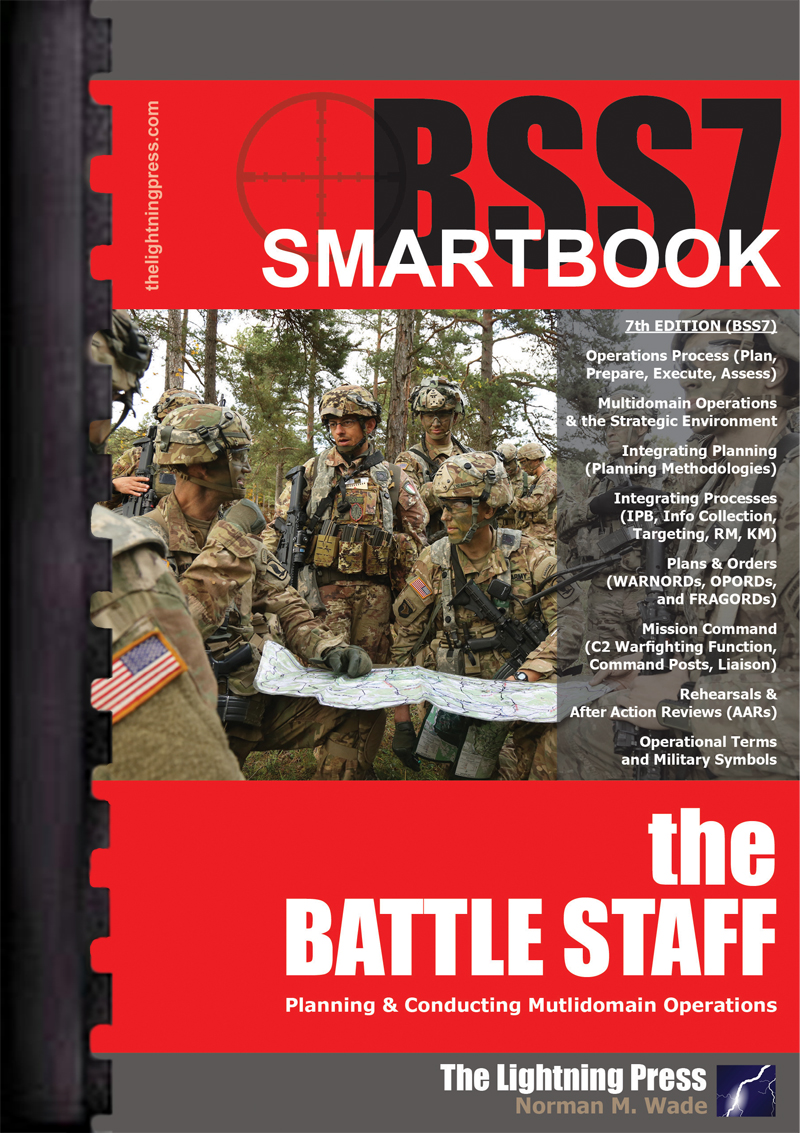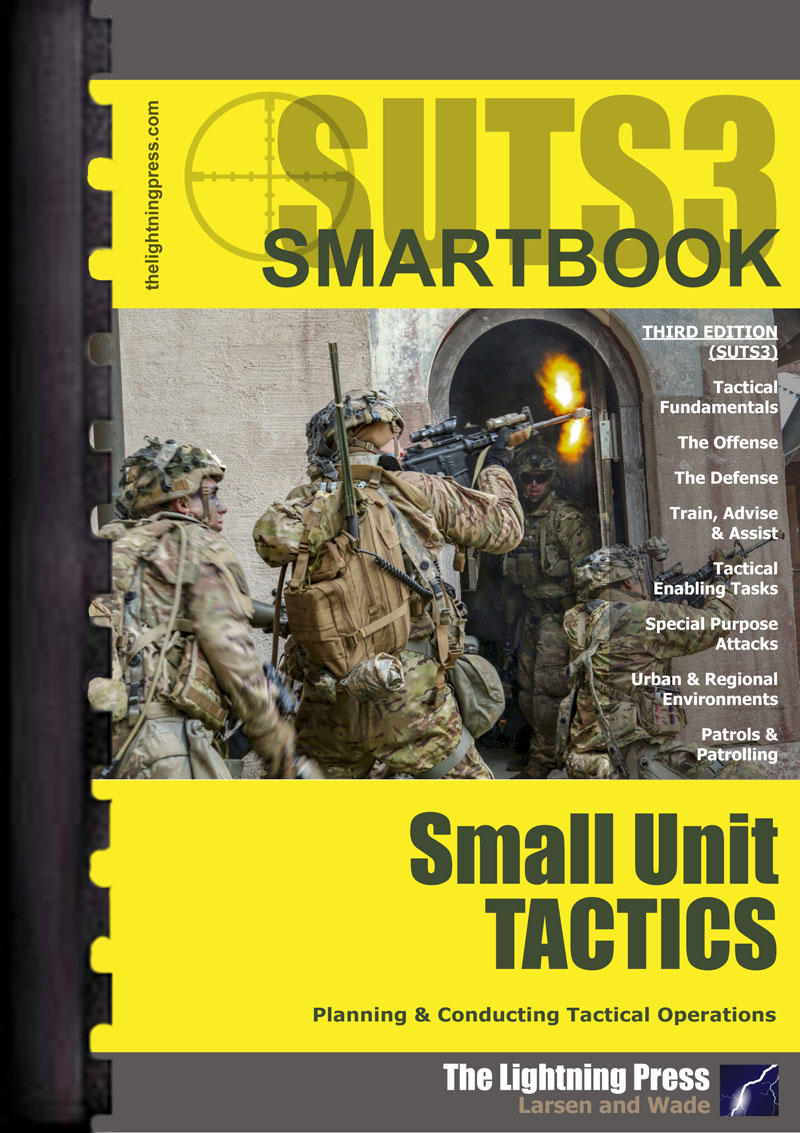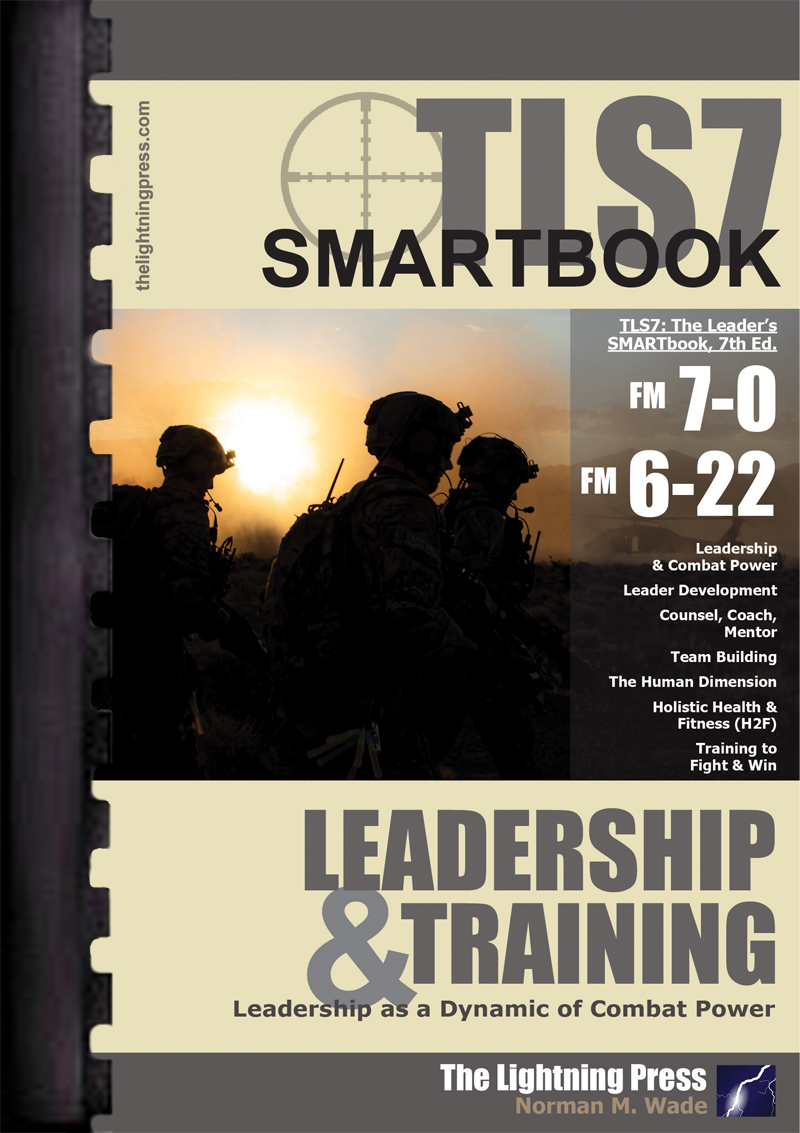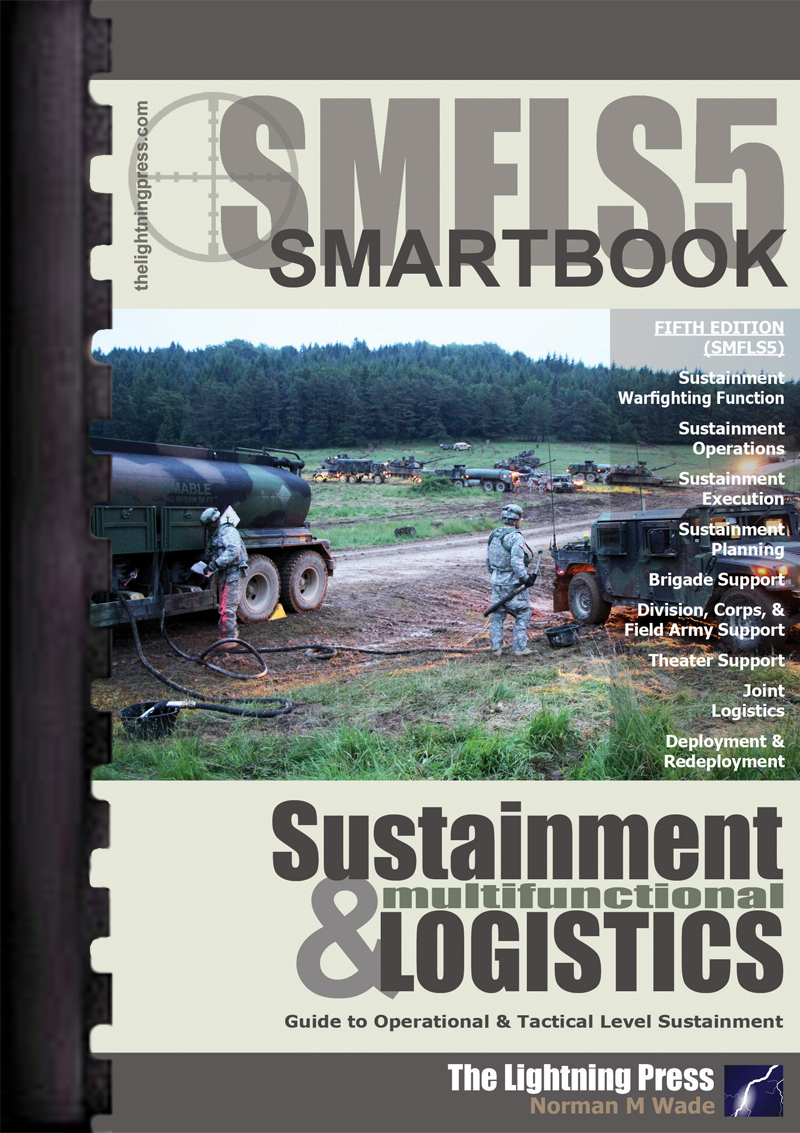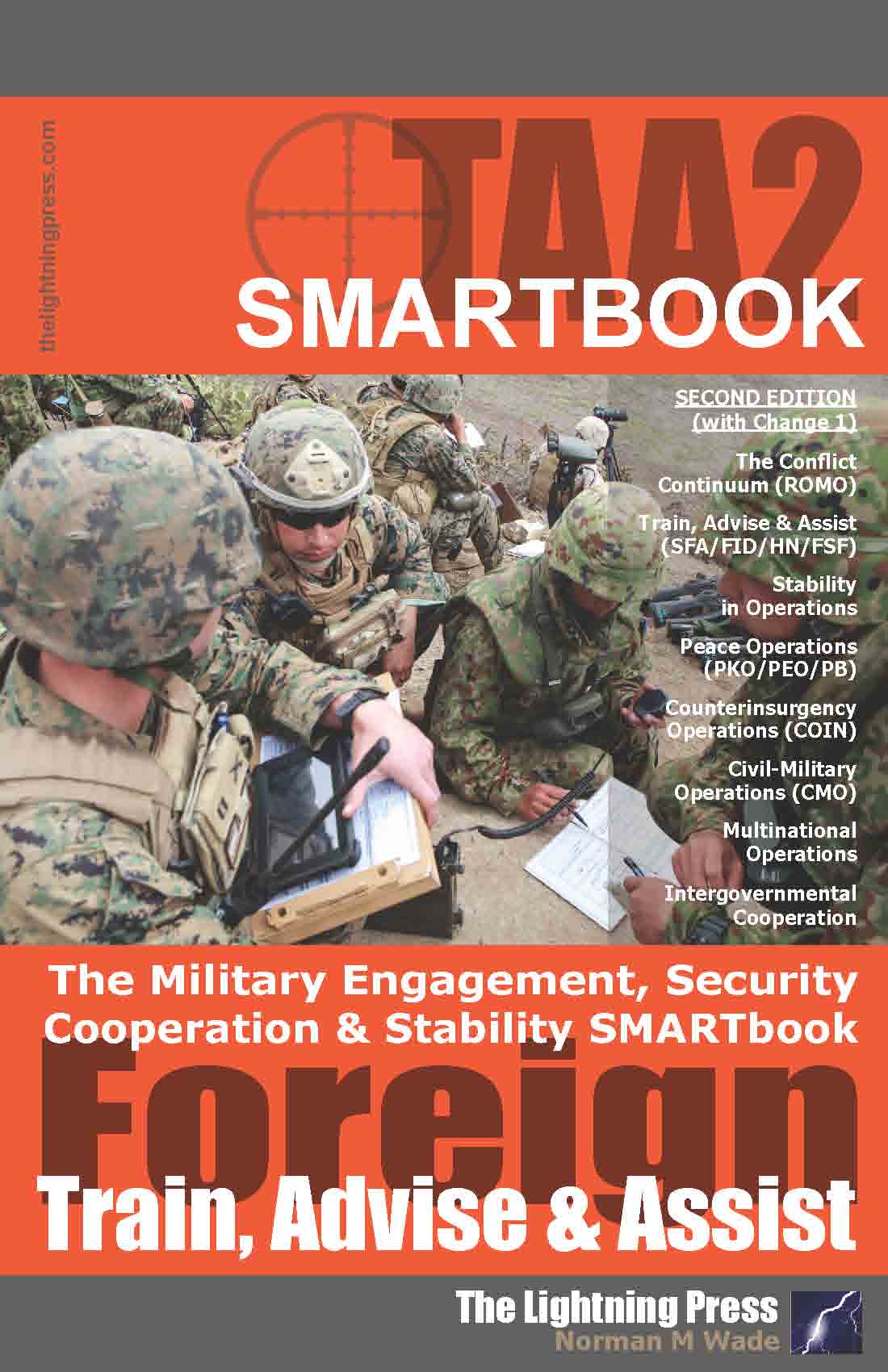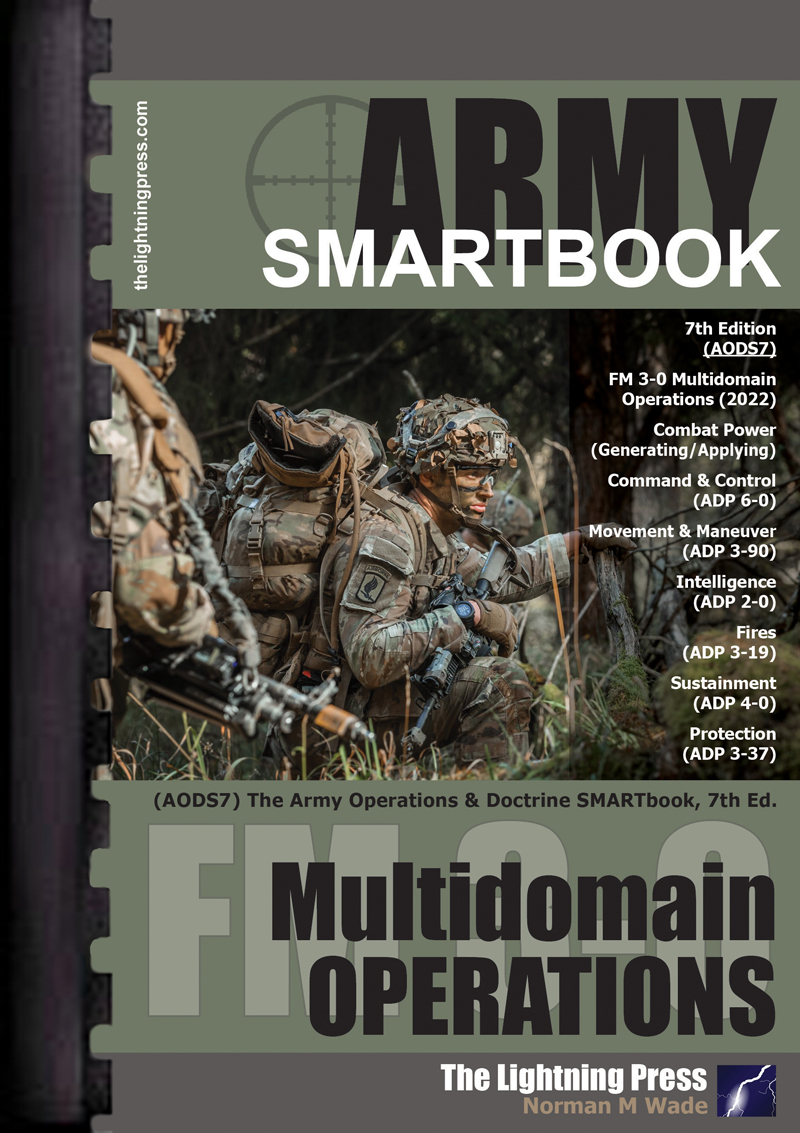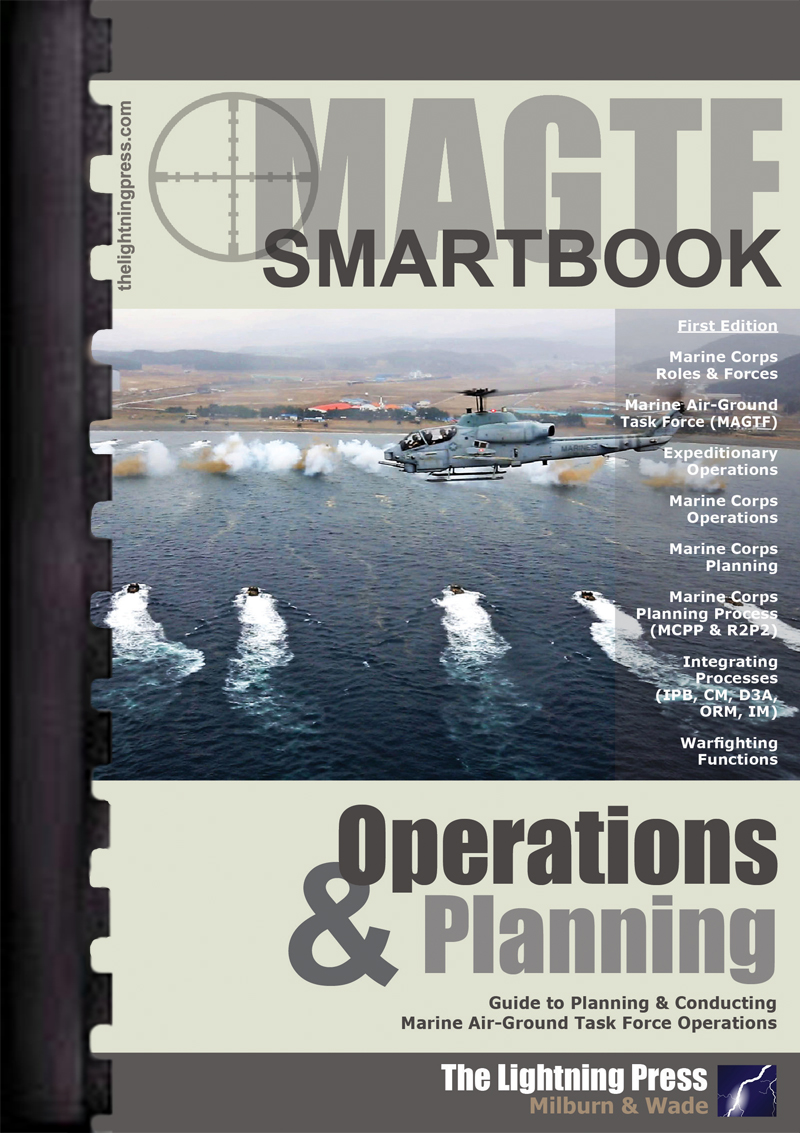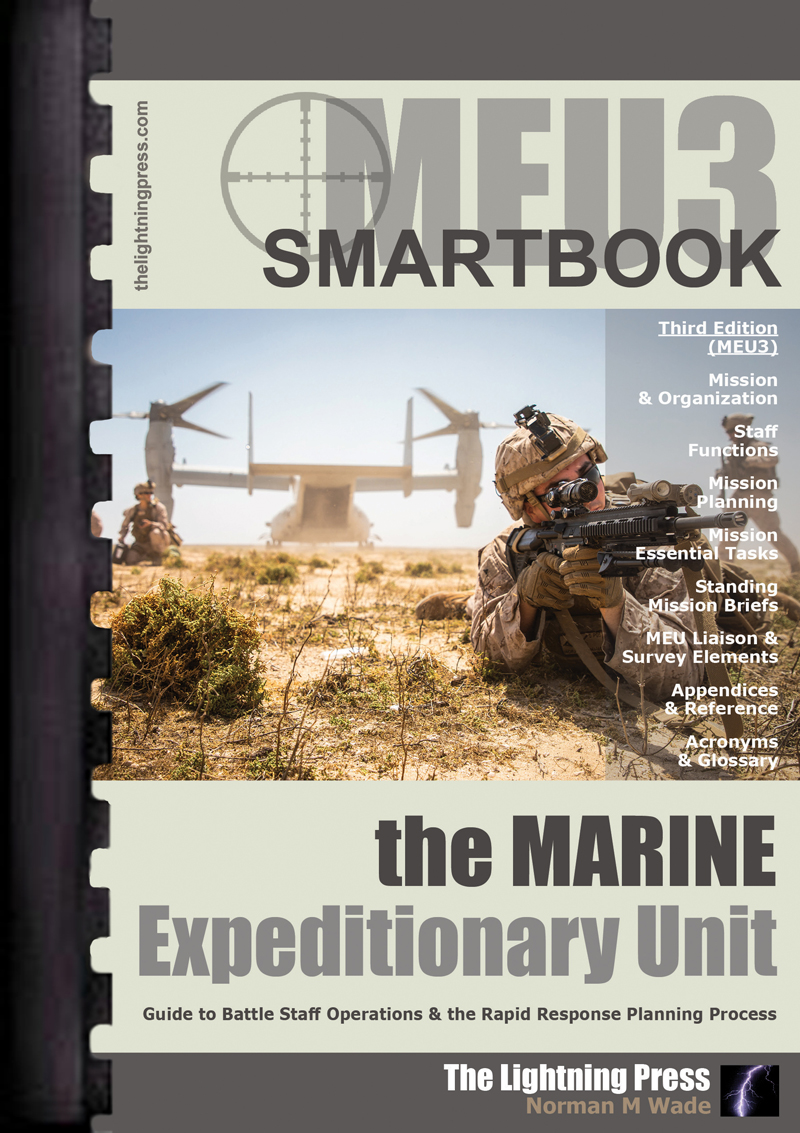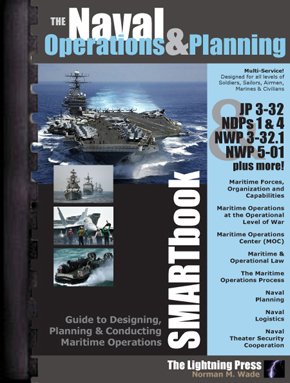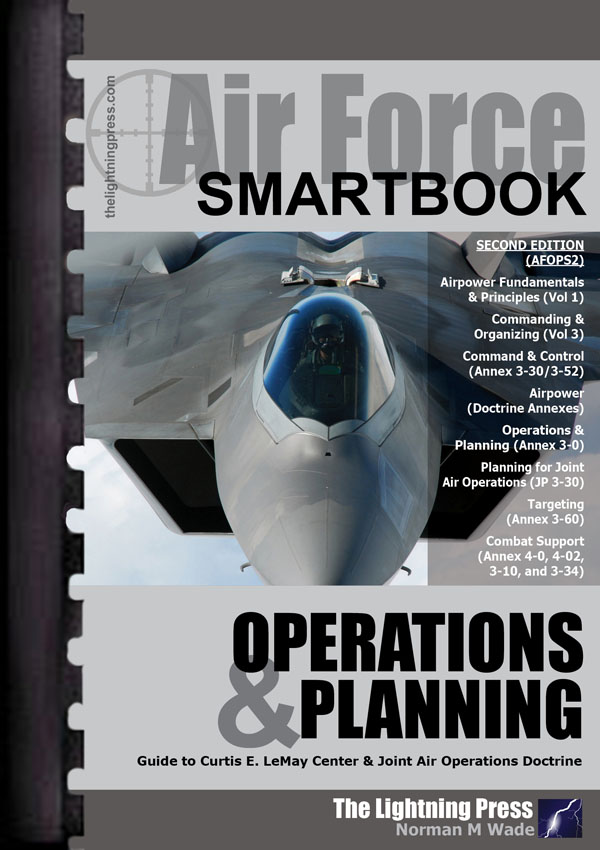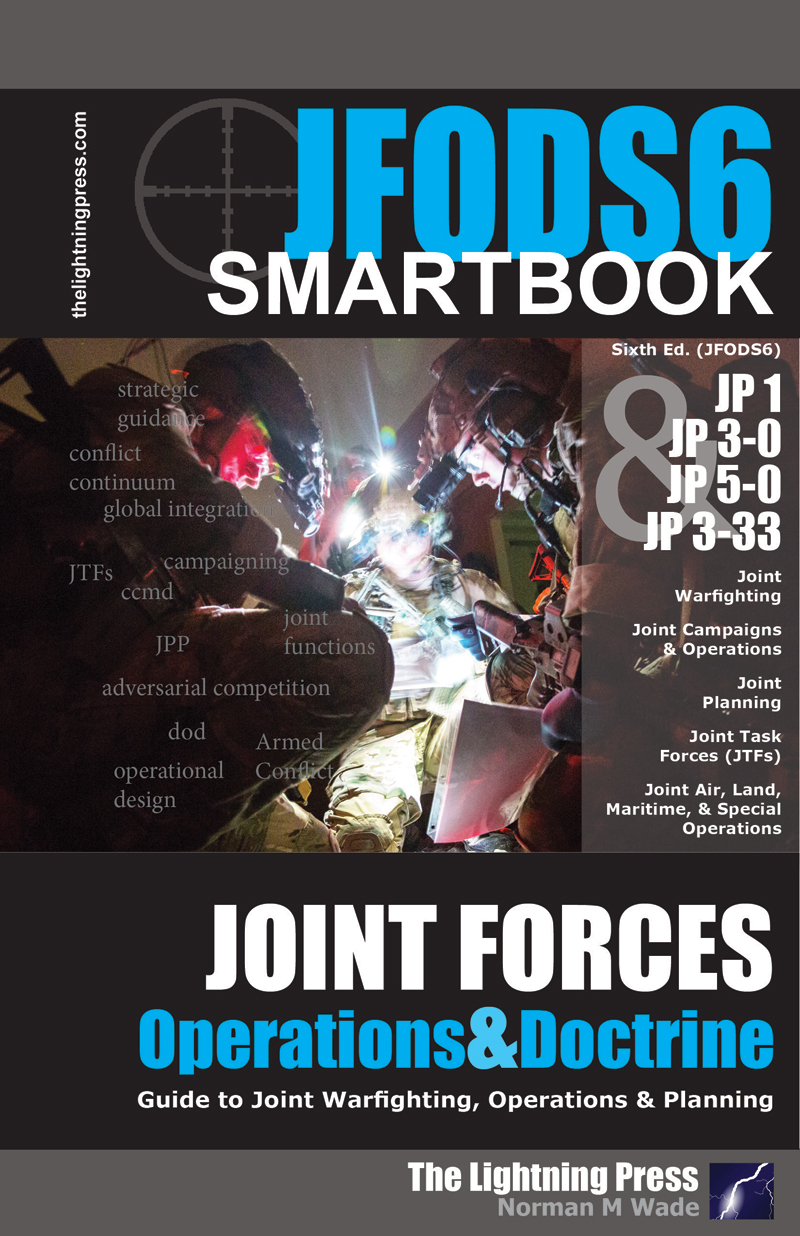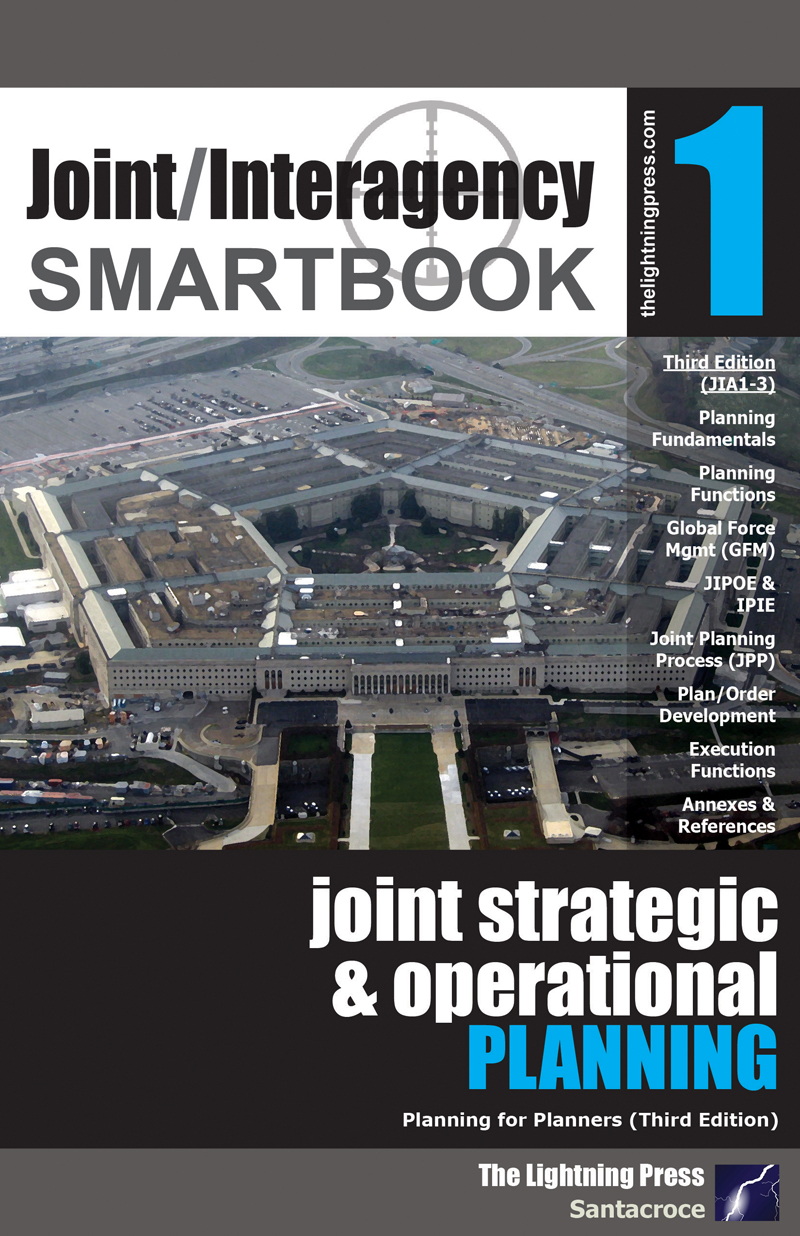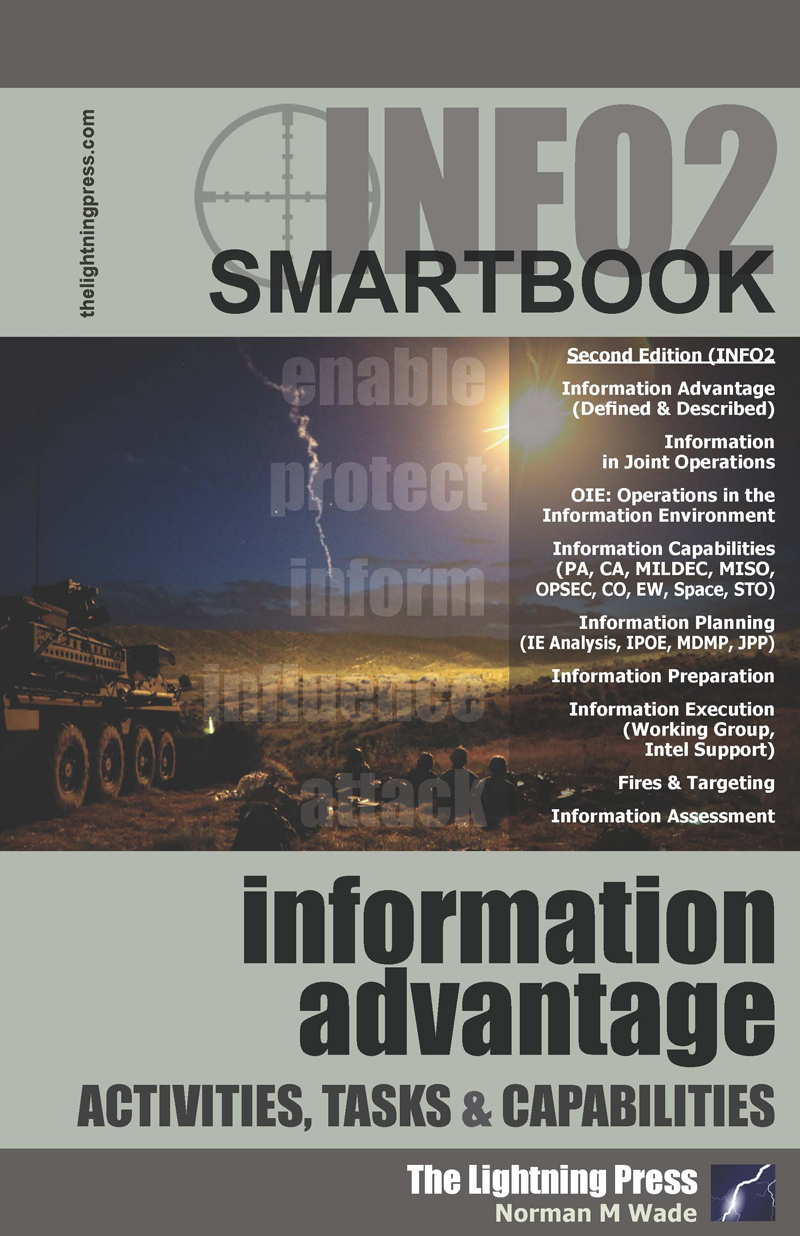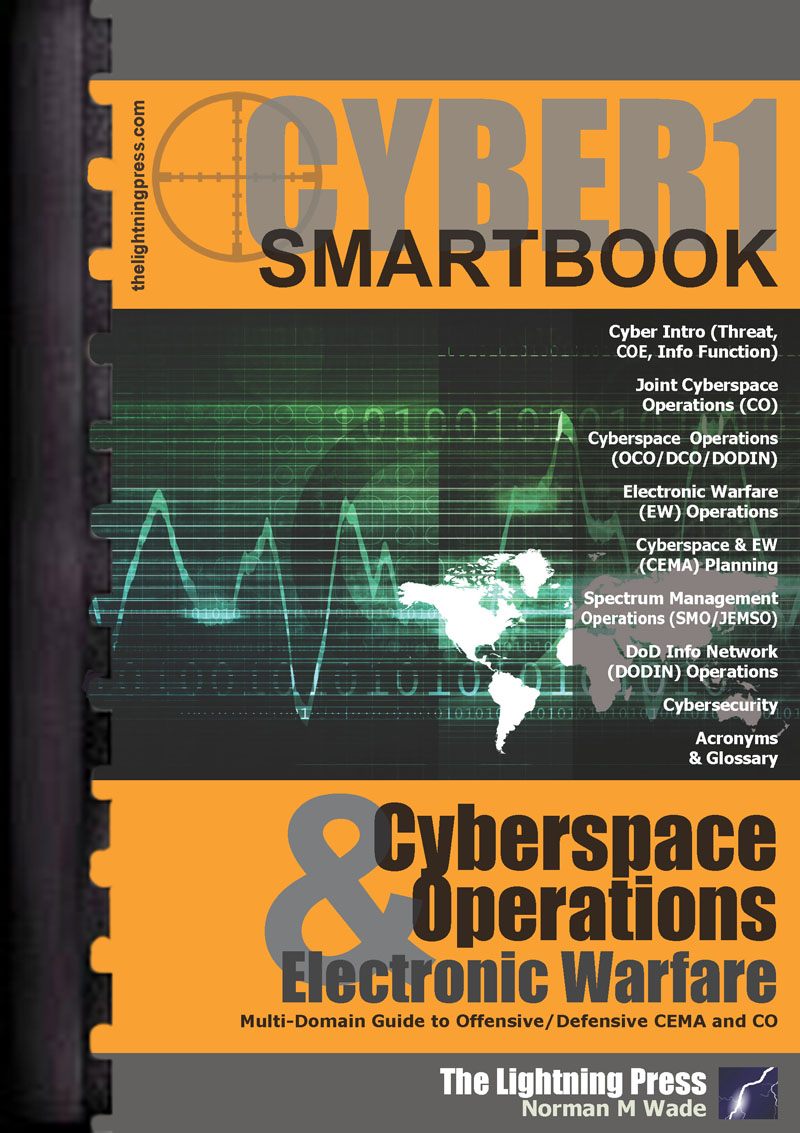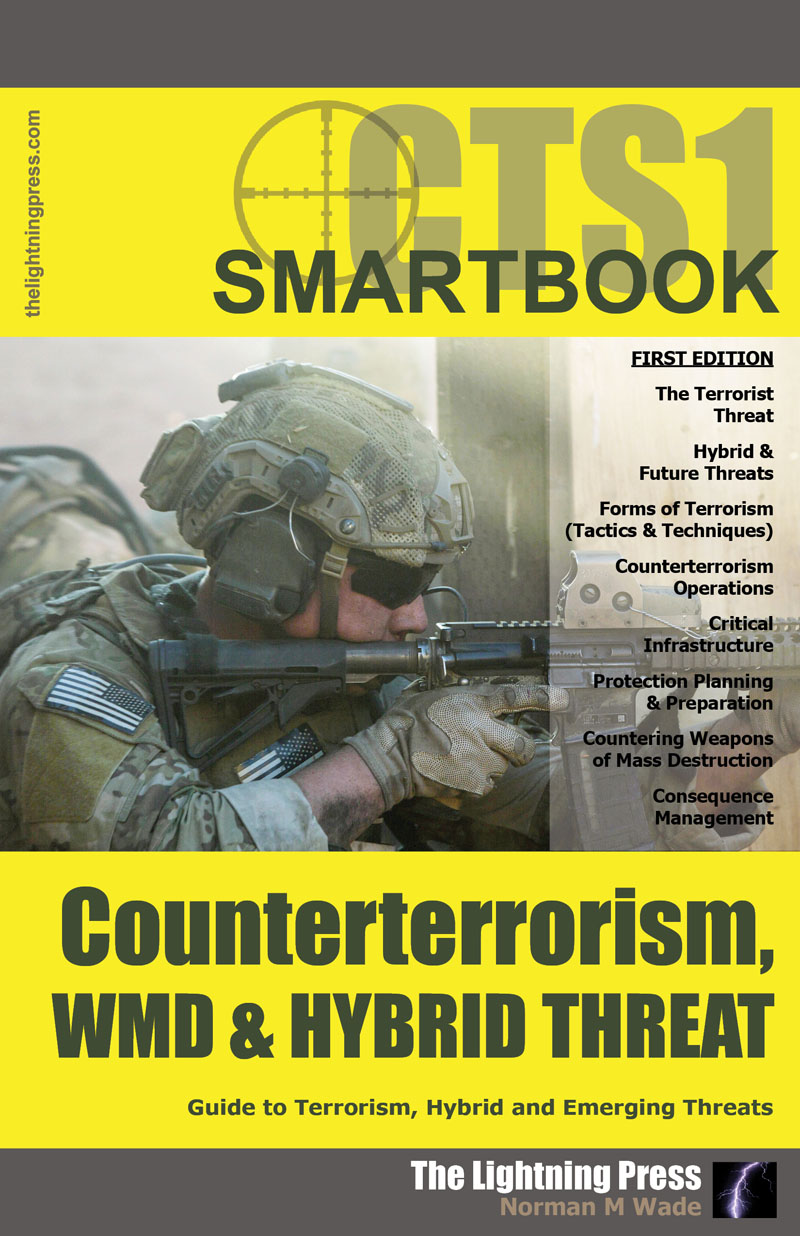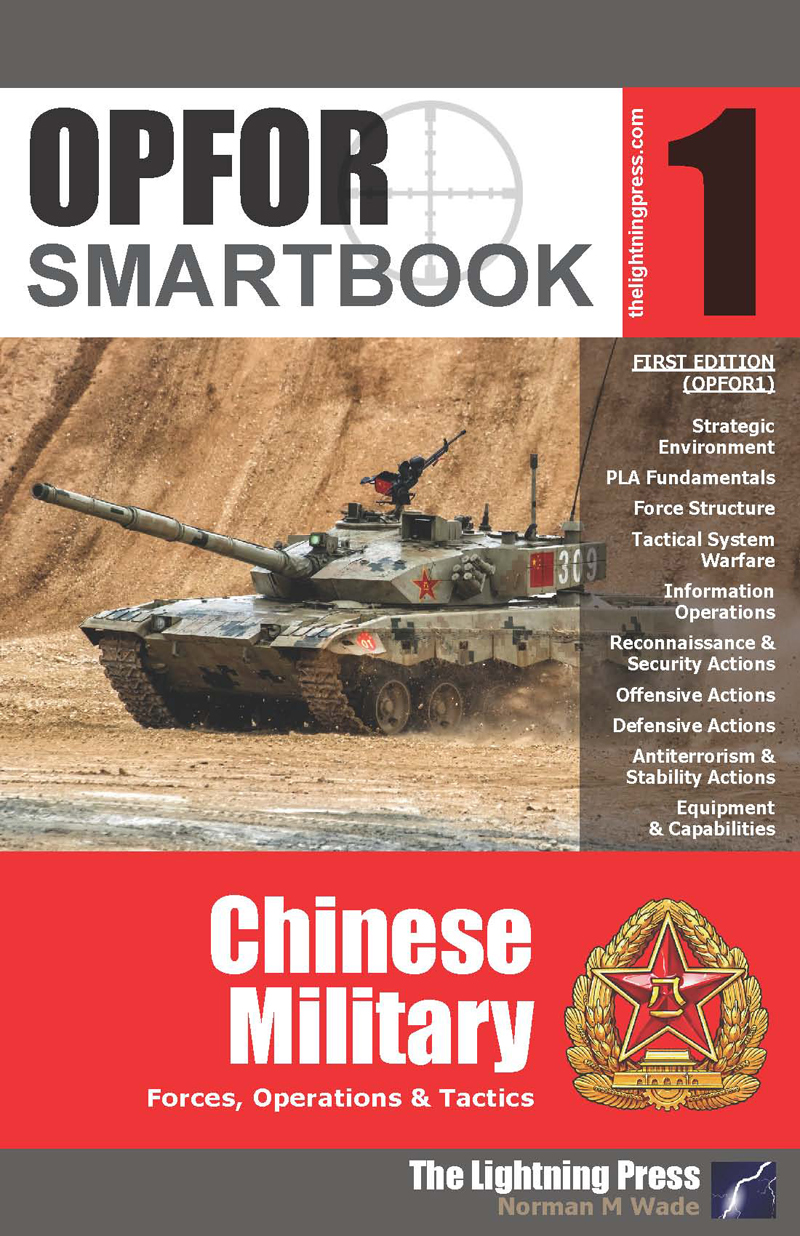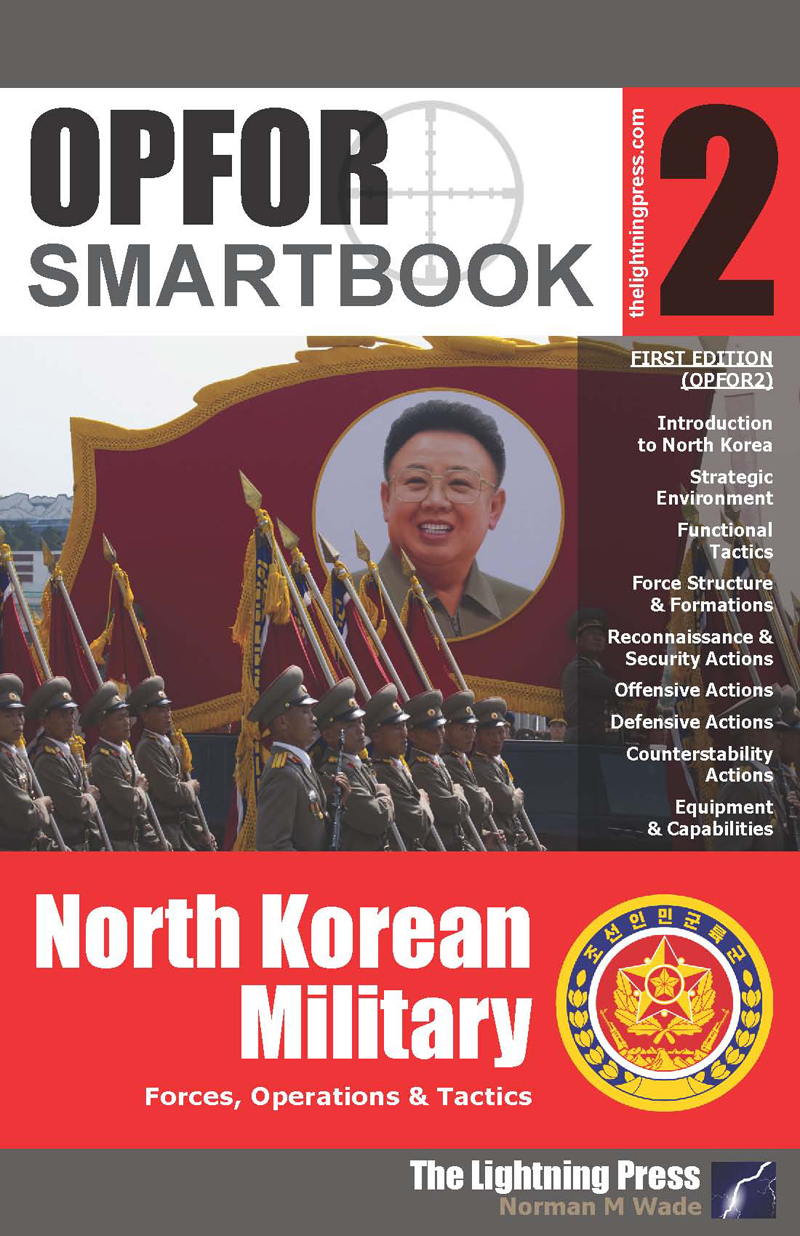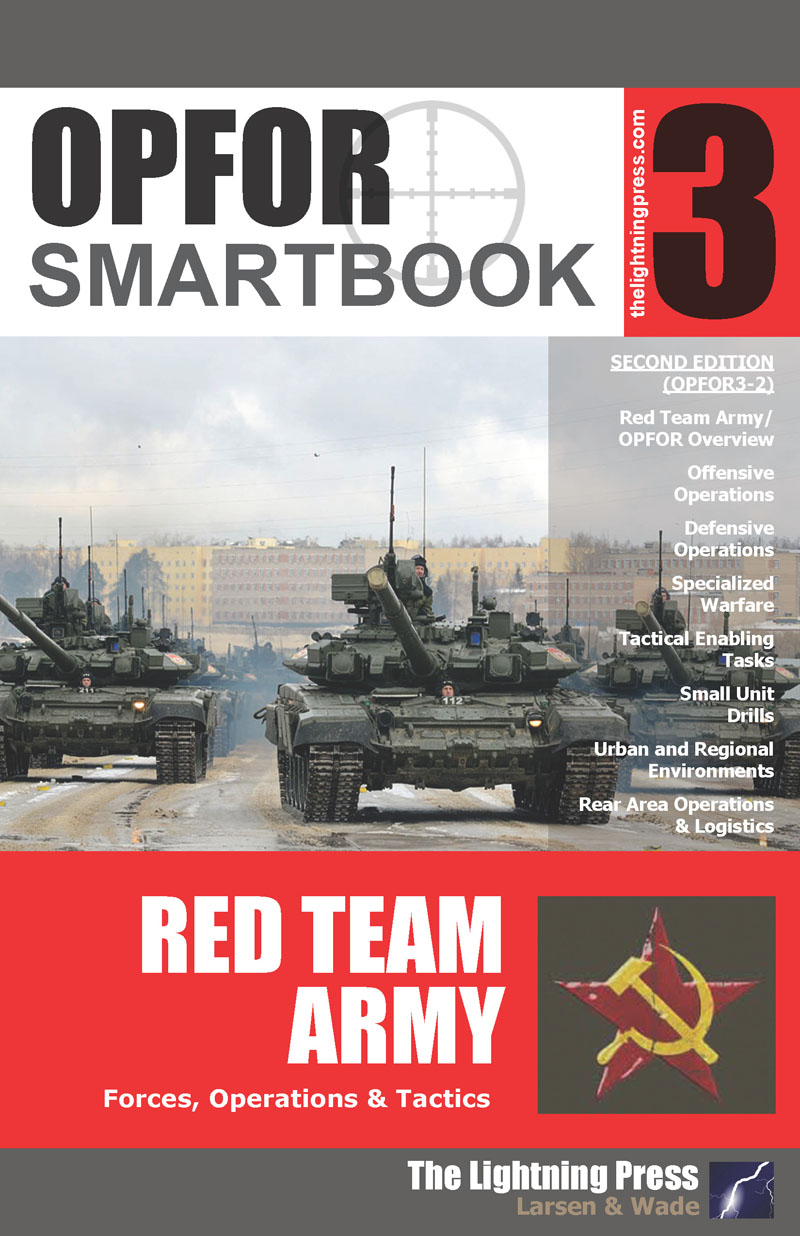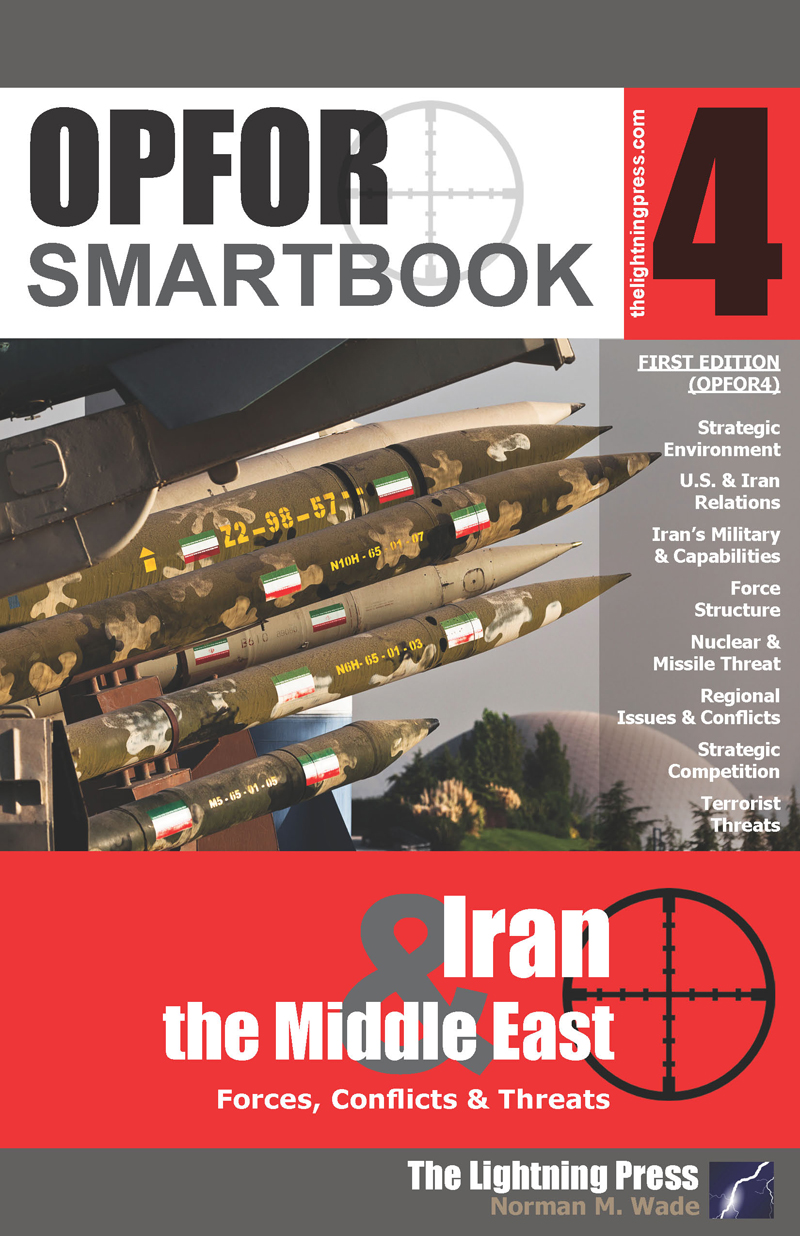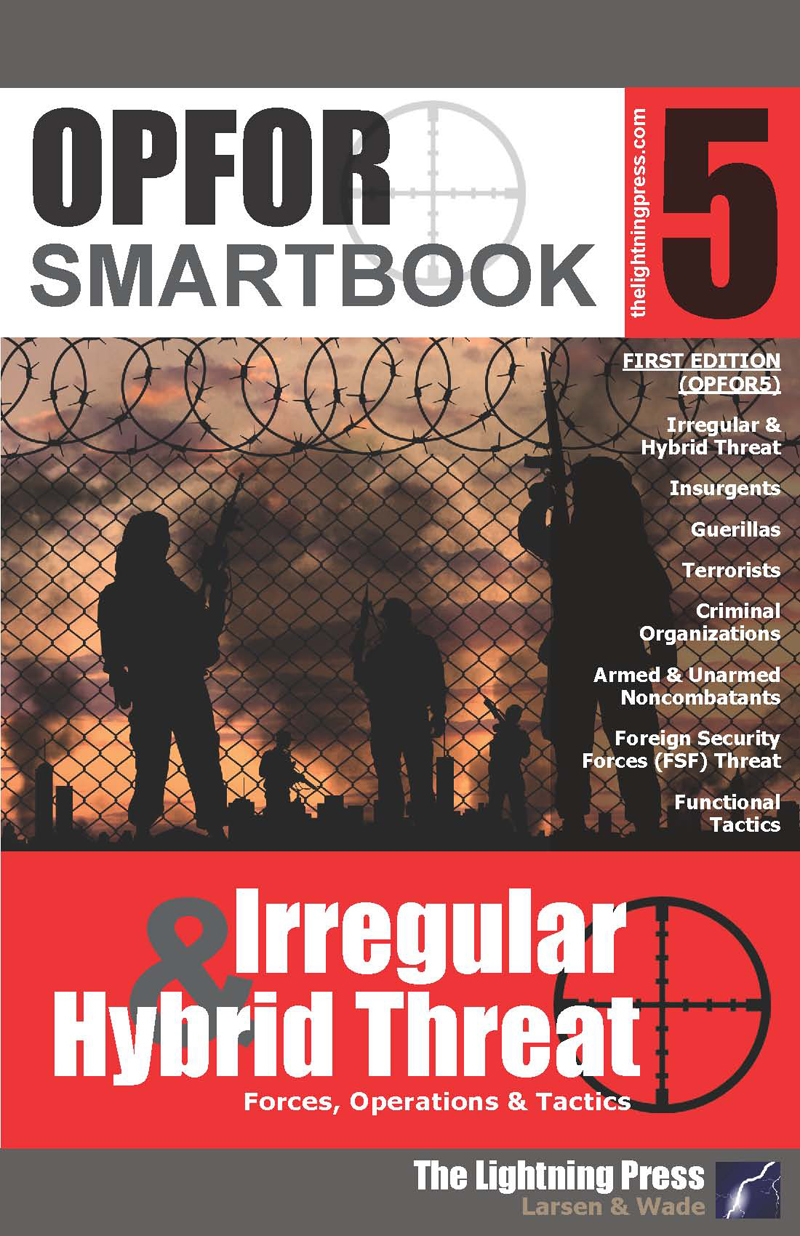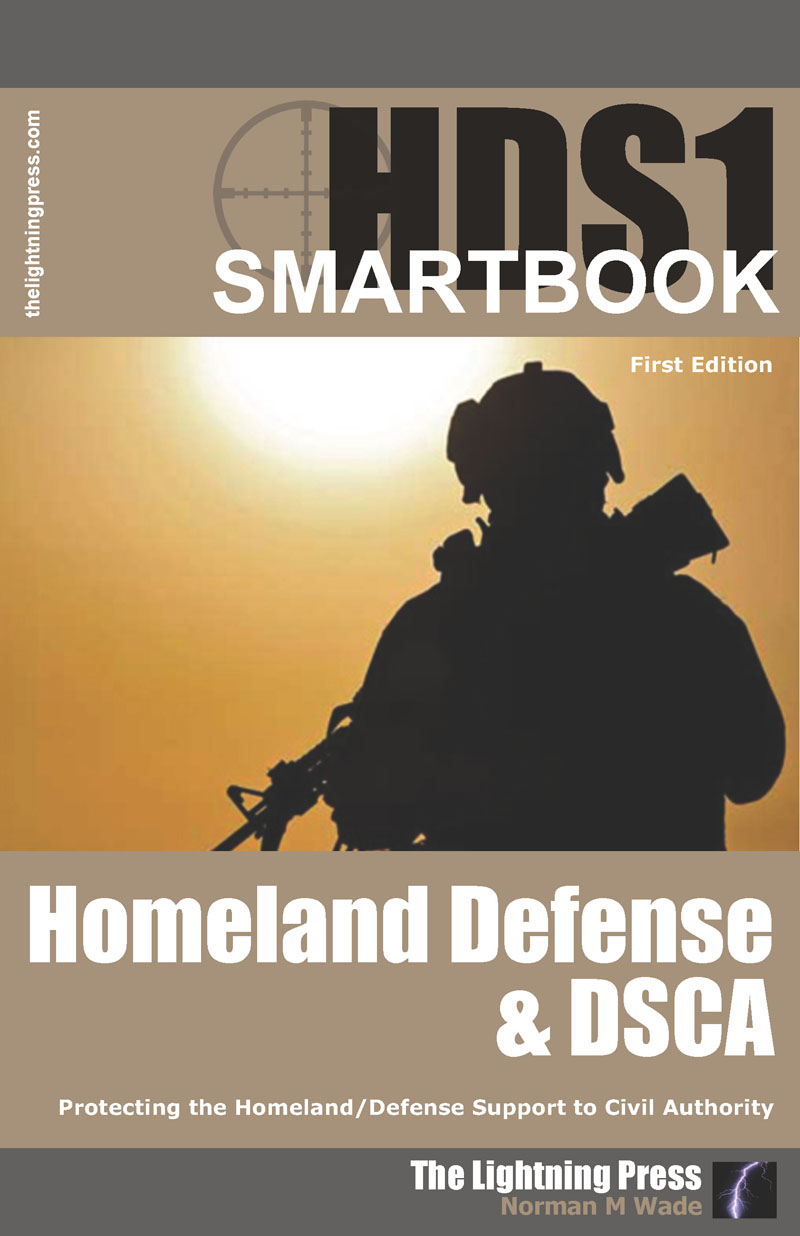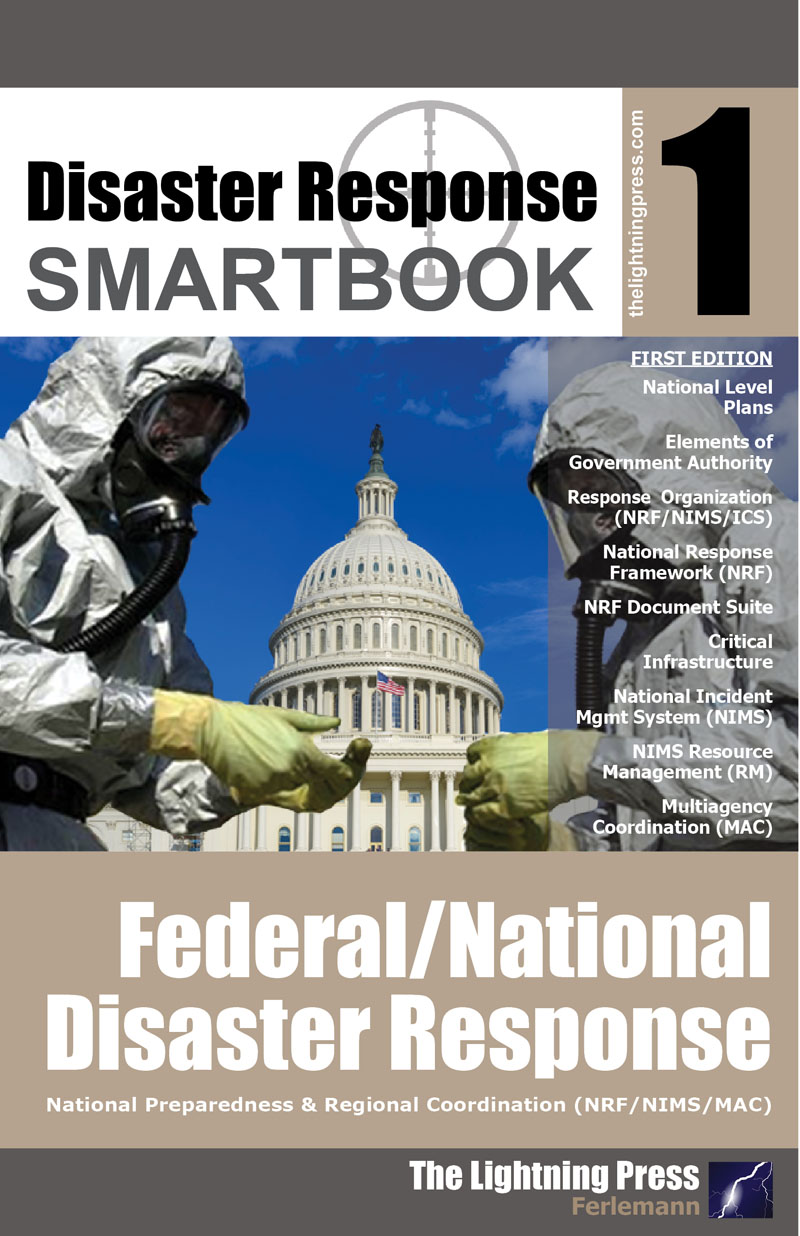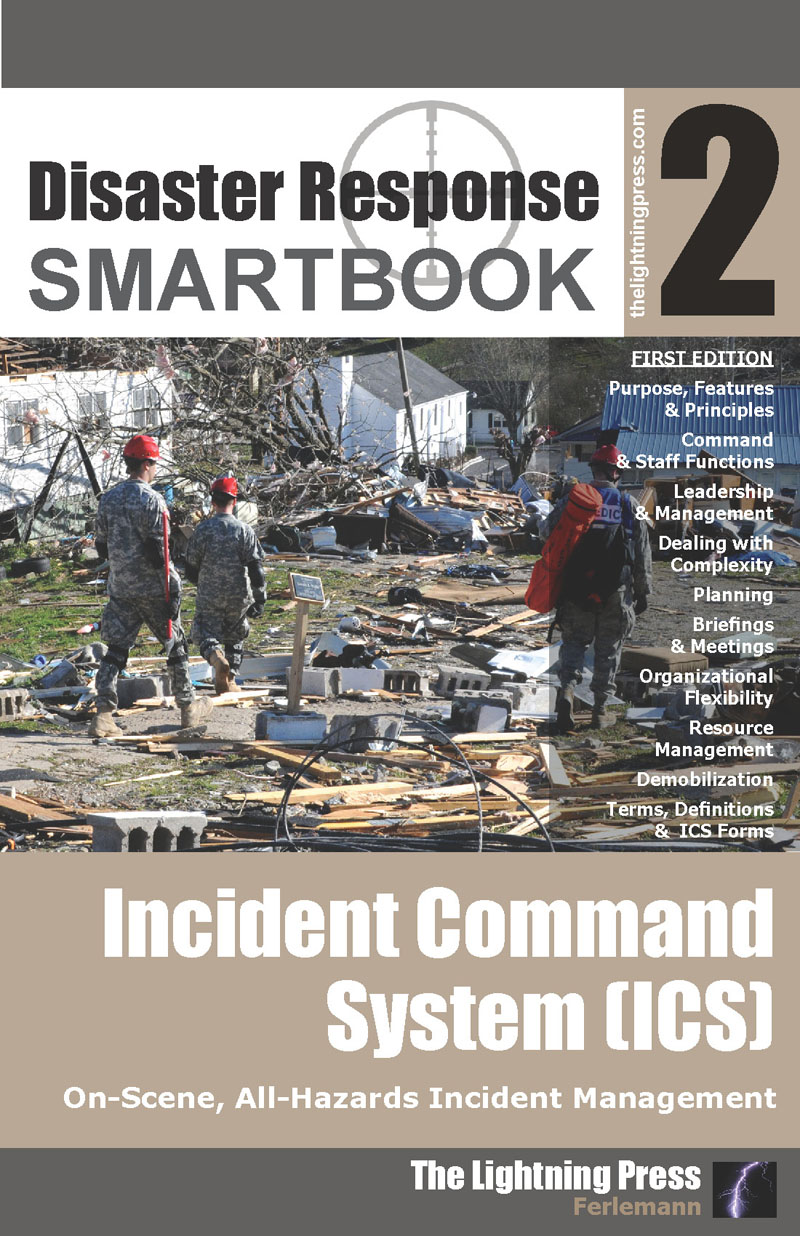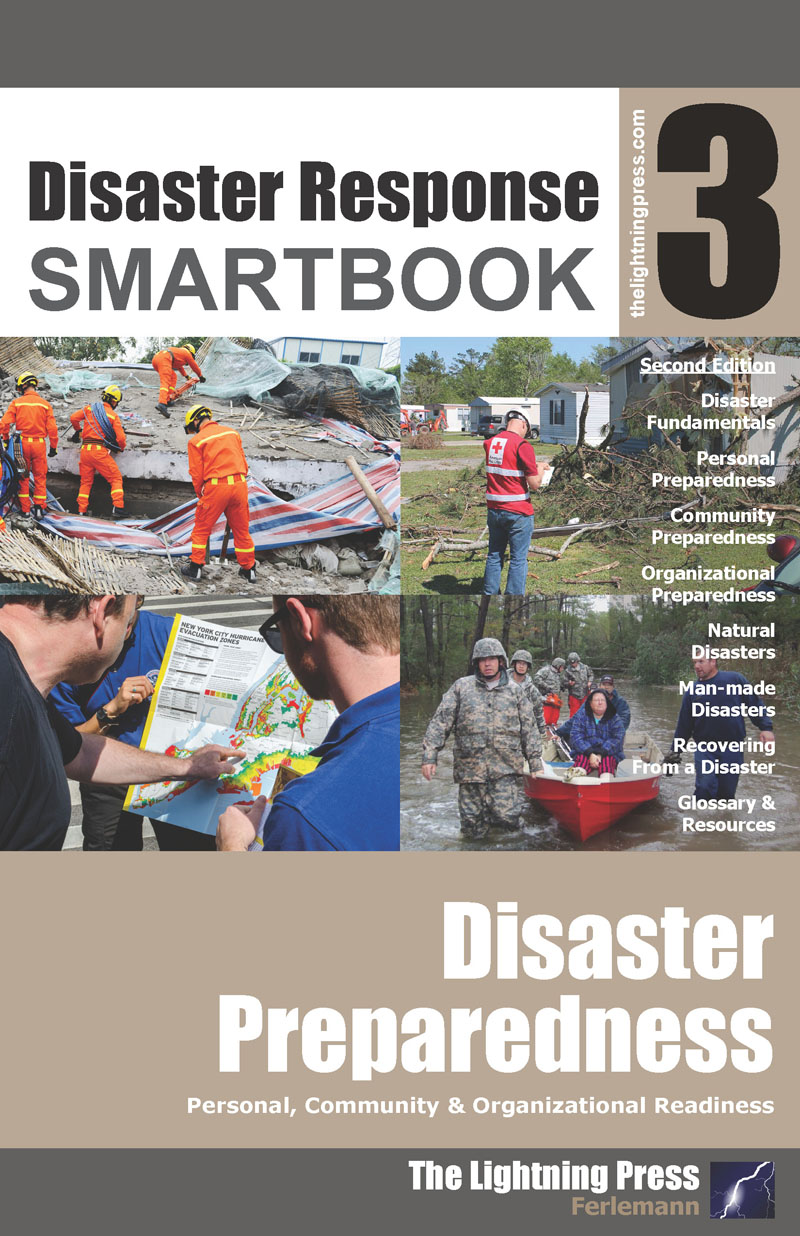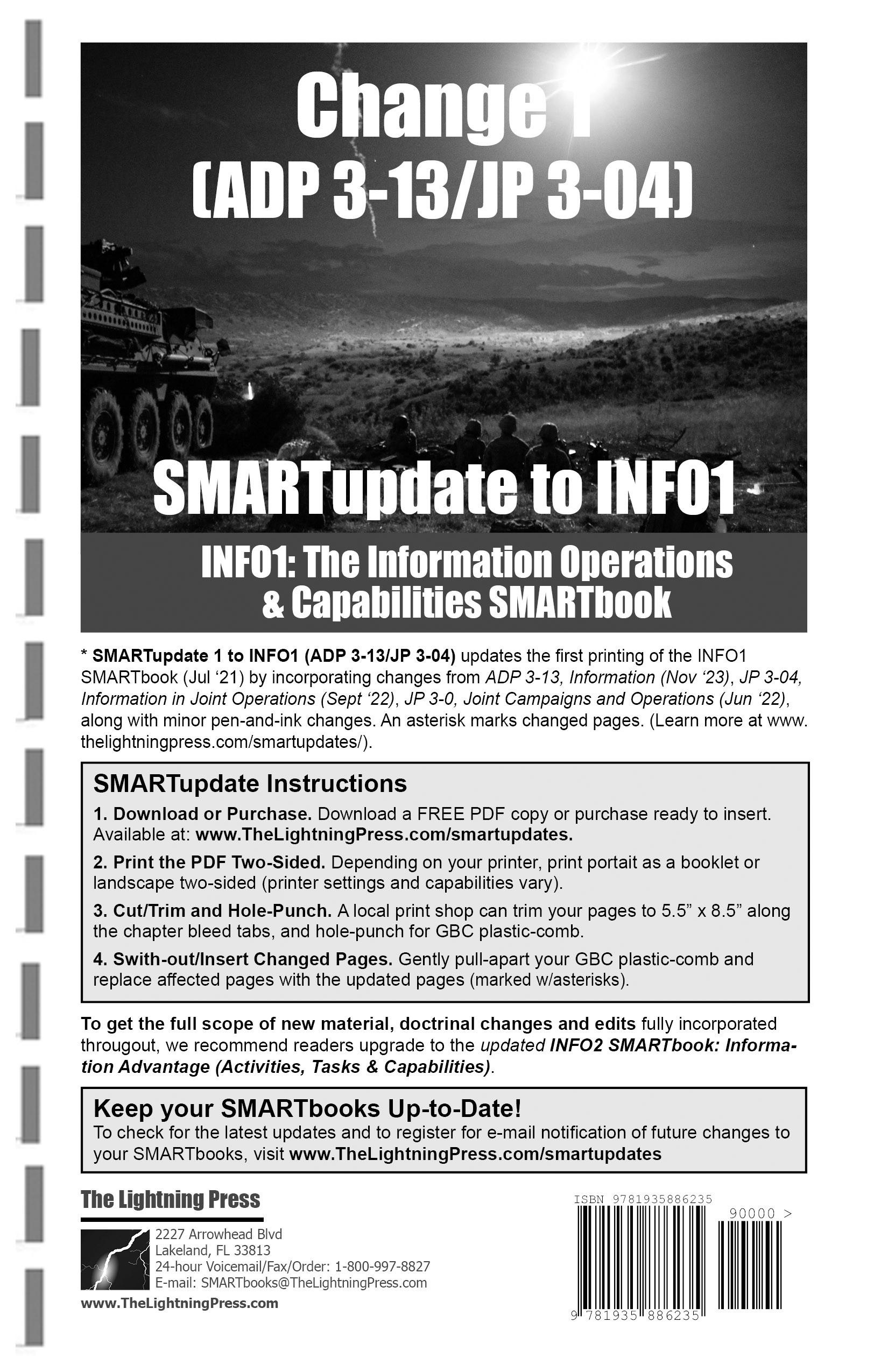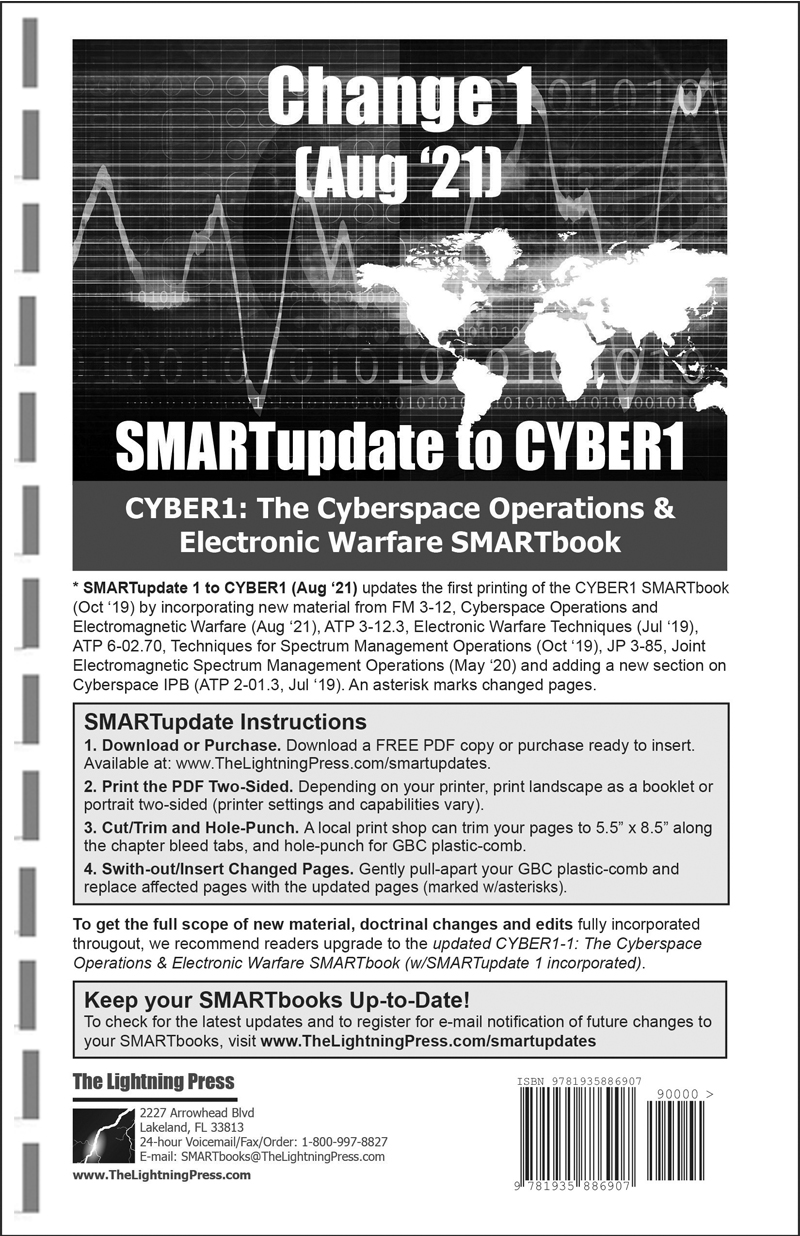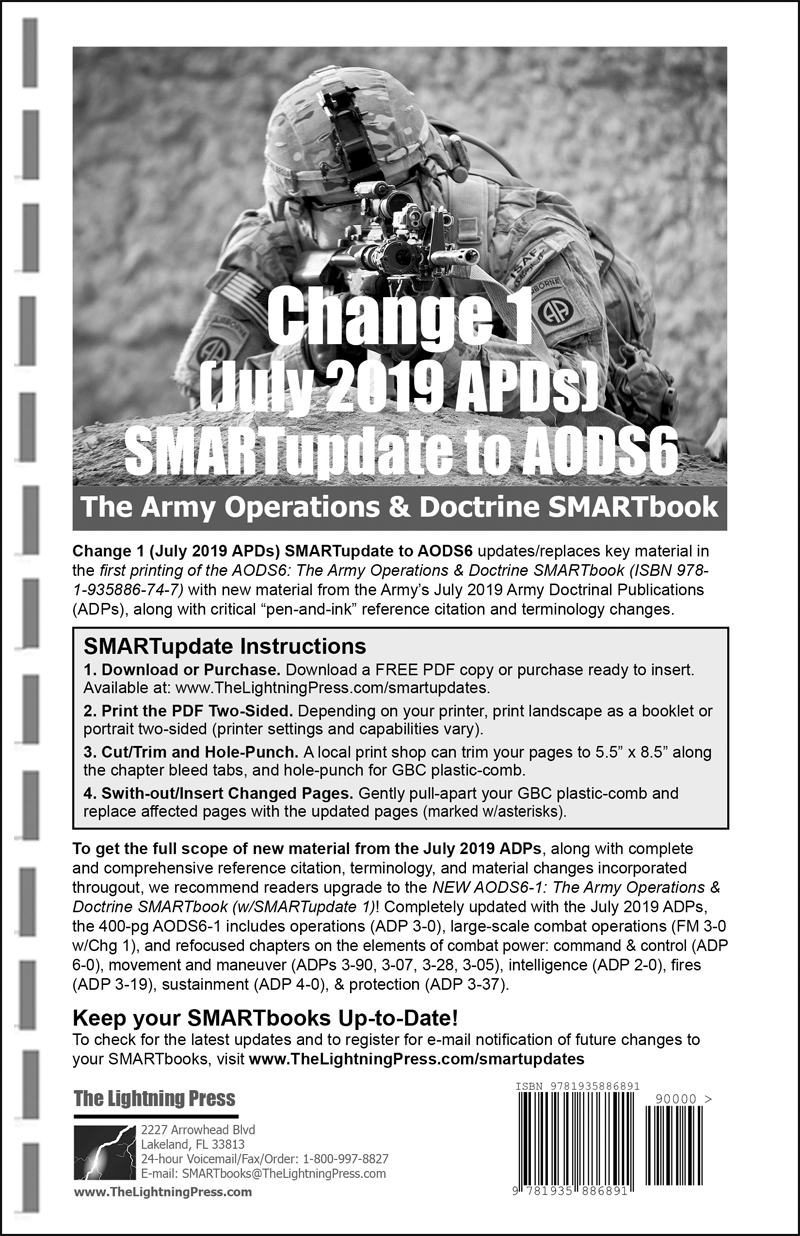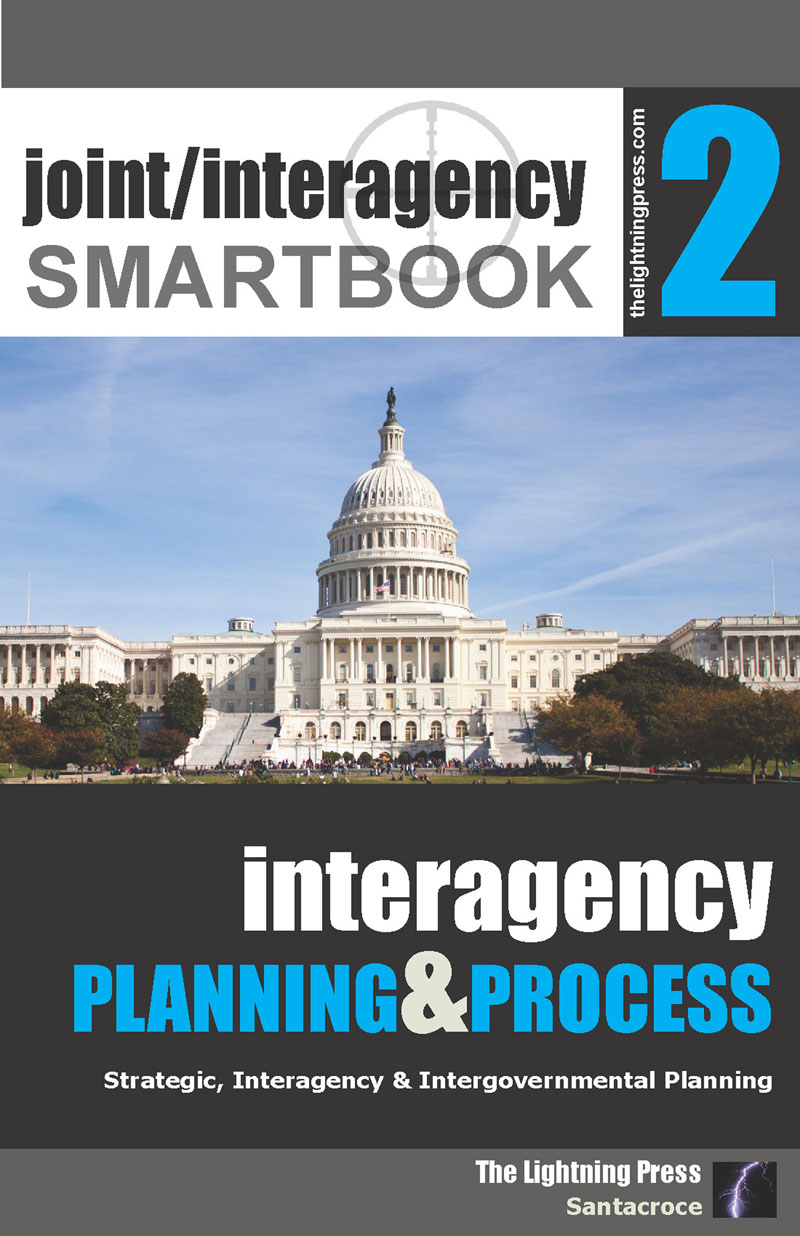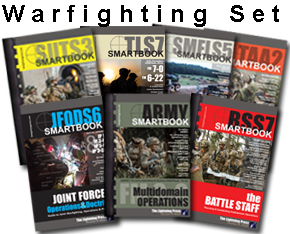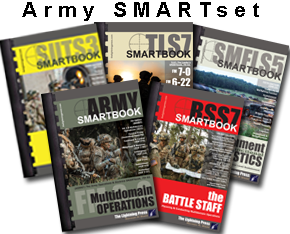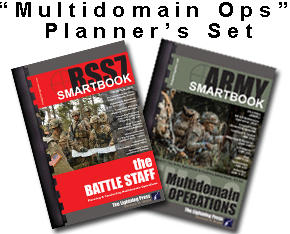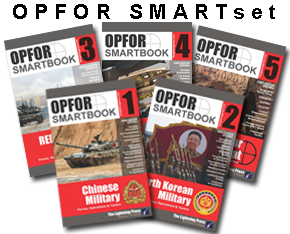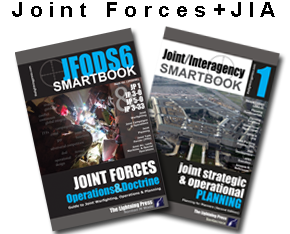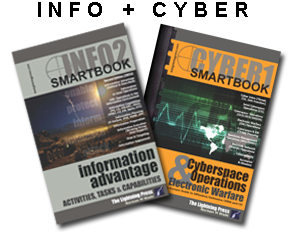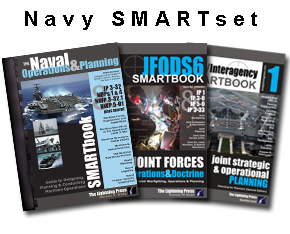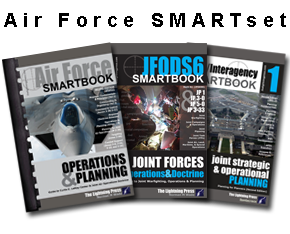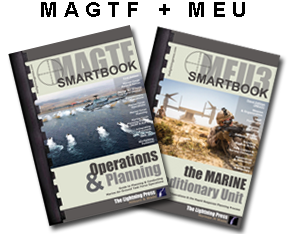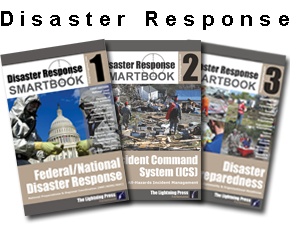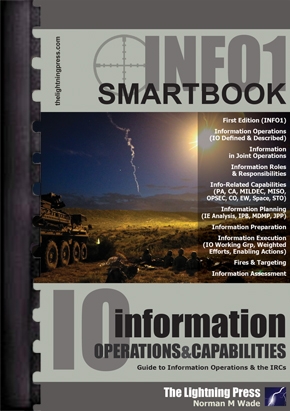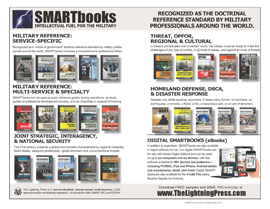Over the past two decades, information operations (IO) has gone through a number of doctrinal evolutions, explained, in part, by the rapidly changing nature of information, its flow, processing, dissemination, impact and, in particular, its military employment. INFO1: The Information Operations & Capabilities SMARTbook (Guide to Information Operations & the IRCs)examines the most current doctrinal references available and charts a path to emerging doctrine.
INFO1 chapters and topics include information operations (IO defined and described), information in joint operations (joint IO), information-related capabilities (public affairs, civil affairs and civil military operations, military deception, military information support operations, operations security, cyberspace electromagnetic activities, cyberspace operations, electronic warfare, space operations, special technical operations, & additional IRCs), information planning (IRC synchronization, information environment analysis, IPB, MDMP, JPP), information preparation, information execution (IO working group, IO weighted efforts and enabling activities, intel support), fires & targeting, and information assessment.
Download a free PDF sample and learn more at: INFO1: The Information Operations & Capabilities SMARTbook (Guide to Information Operations & the IRCs)
Chap 1: Information Operations (Defined & Described)
Information is a resource. As a resource, it must be obtained, developed, refined, distributed, and protected. The information element of combat power is integral to optimizing combat power, particularly given the increasing relevance of operations in and through the information environment to achieve decisive outcomes.
Information Operations (IO) is the integrated employment, during military operations, of information-related capabilities in concert with other lines of operation to influence, disrupt, corrupt, or usurp the decision-making of adversaries and potential adversaries while protecting our own. The purpose of IO is to create effects in and through the information environment that provide commanders decisive advantage over enemies and adversaries.
Chap 2: Information in Joint Operations
The joint force commander (JFC) leverages informational aspects of military activities to gain an advantage; failing to leverage those aspects may cede this advantage to others. Leveraging the informational aspects of military activities ultimately affects strategic outcomes. The joint force attacks and exploits information, information networks, and systems to affect the ability of relevant actors to leverage information in support of their own objectives. This includes the manipulation, modification, or destruction of information or disruption of the flow of information for the purpose of gaining a position of military advantage. This also includes targeting the credibility of information.
Chap 3: Information-Related Capabilities (IRCs)
An information-related capability (IRC) is a tool, technique, or activity employed within a dimension of the information environment that can be used to create effects and operationally desirable conditions. IO brings together information-related capabilities (IRCs) at a specific time and in a coherent fashion to create effects in and through the information environment that advance the ability to deliver operational advantage to the commander.
All unit operations, activities, and actions affect the information environment. Even if they primarily affect the physical dimension, they nonetheless also affect the informational and cognitive dimensions. For this reason, whether or not they are routinely considered an IRC, a wide variety of unit functions and activities can be adapted for the purposes of conducting information operations or serve as enablers to its planning, execution, and assessment.
Chap 4: Information Planning
Planning is the art and science of understanding a situation, envisioning a desired future, and laying out effective ways of bringing that future about. Commanders, supported by their staffs, ensure IO is fully integrated into the plan, starting with Army design methodology (ADM) and progressing through the military decisionmaking process (MDMP). The focal point for IO planning is the IO officer (or designated representative for IO). However, the entire staff contributes to planning products that describe and depict how IO supports the commander’s intent and concept of operations.
Chap 5: Information Preparation
Preparation consists of those activities performed by units and Soldiers to improve their ability to execute an operation. Preparation creates conditions that improve friendly force opportunities for success. Because many IO objectives and IRC tasks require long lead times to create desired effects, preparation for IO often starts earlier than for other types of operations. Initial preparation for specific IRCs and IO units (such as 1st IO Command or a Theater IO Group) may begin during peacetime.
Chap 6: Information Execution
Execution of IO includes IRCs executing the synchronization plan and the commander and staff monitoring and assessing their activities relative to the plan and adjusting these efforts, as necessary. The primary mechanism for monitoring and assessing IRC activities is the IO working group. There are two variations of the IO working group. The first monitors and assesses ongoing planned operations and convenes on a routine, recurring basis. The second monitors and assesses unplanned or crisis situations and convenes on an as-needed basis.
Chap 7: Fires & Targeting
The fires warfighting function is the related tasks and systems that create and converge effects in all domains against the threat to enable actions across the range of military operations. These tasks and systems create lethal and nonlethal effects delivered from both Army and Joint forces, as well as other unified action partners.
Targeting is the process of selecting and prioritizing targets and matching the appropriate response to them, considering operational requirements and capabilities (JP 3-0). IO is integrated into the targeting cycle to produce effects in and through the information environment that support objectives.
Chap 8: Information Assessment
Assessment precedes and guides the other activities of the operations process. It is also part of targeting. In short, assessment occurs at all levels and within all operations and has a role in any process or activity. The purpose of assessment is to improve the commander’s decision making and make operations more effective. Assessment is a key component of the commander’s decision cycle, helping to determine the results of unit actions in the context of overall mission objectives.
Browse additional military doctrine articles in our SMARTnews Blog & Resource Center.
About The Lightning Press SMARTbooks. Recognized as a “whole of government” doctrinal reference standard by military, national security and government professionals around the world, SMARTbooks comprise a comprehensive professional library. SMARTbooks can be used as quick reference guides during operations, as study guides at education and professional development courses, and as lesson plans and checklists in support of training. Browse our collection of Military Reference SMARTbooks to learn more.

